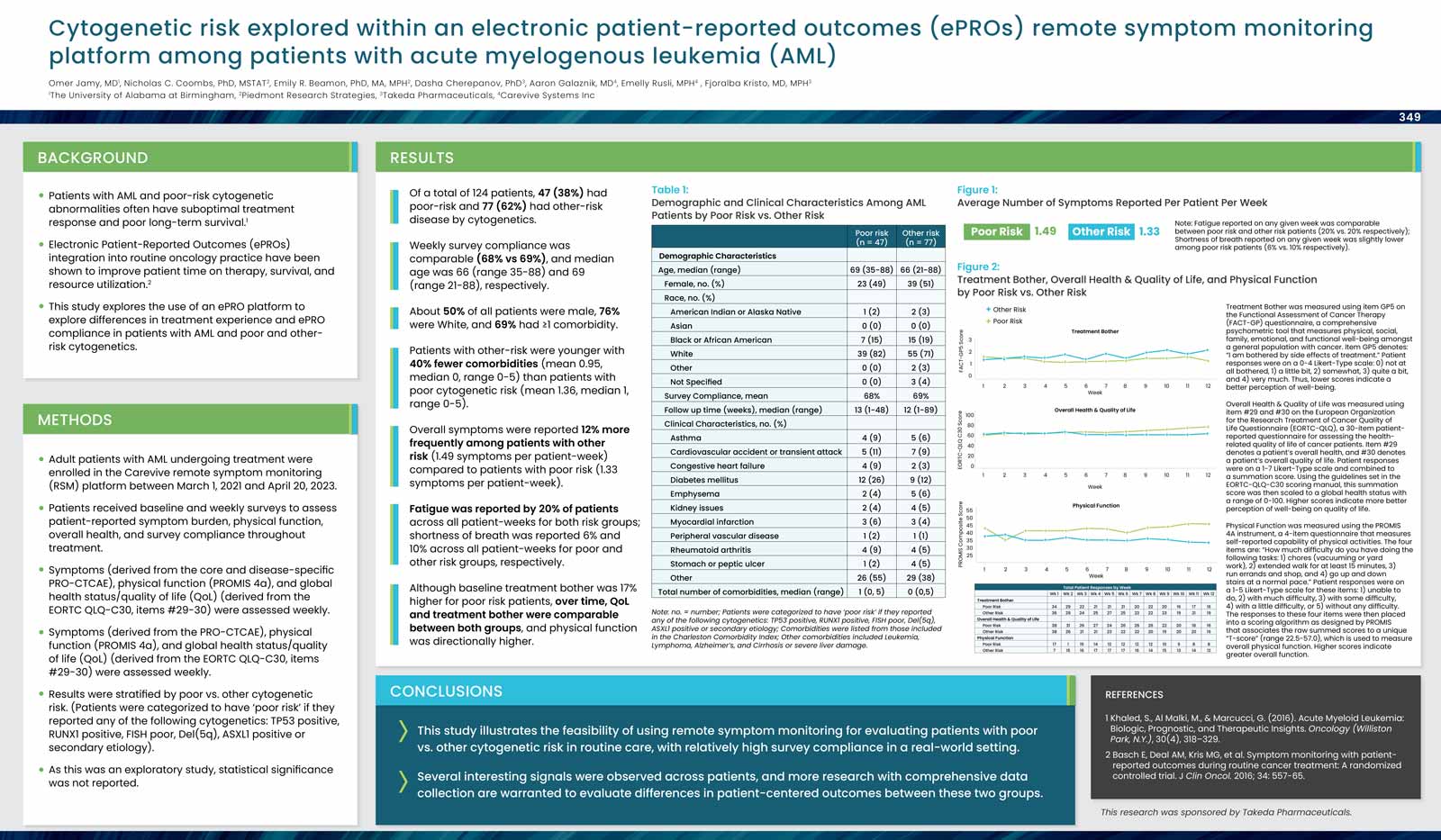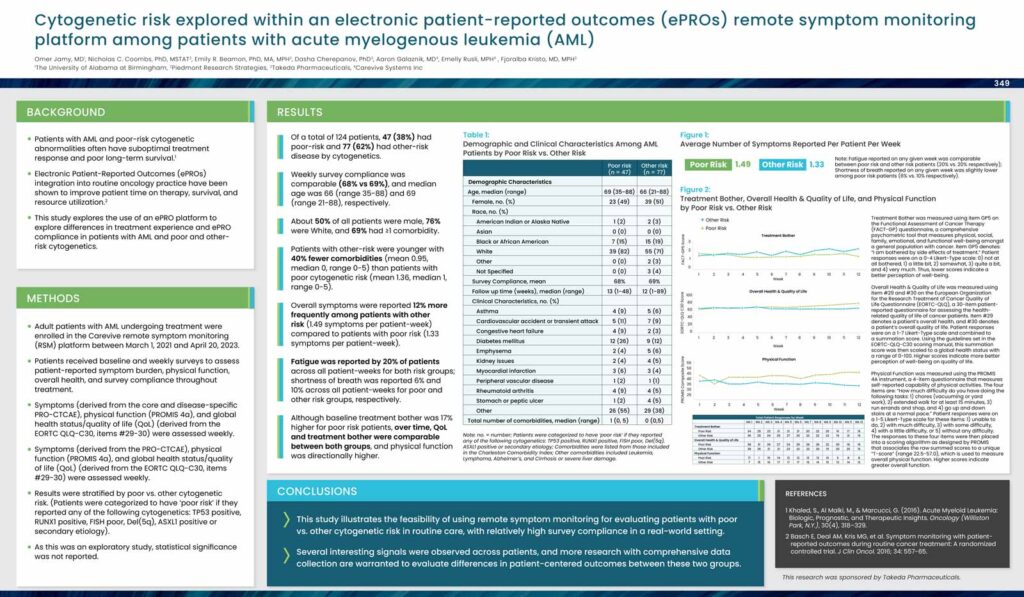
Authors: Omer Jamy, MD1, Nicholas C. Coombs, PhD, MSTAT2, Emily R. Beamon, PhD, MA, MPH2, Dasha Cherepanov, PhD3, Aaron Galaznik, MD4, Emelly Rusli, MPH4 , Fjoralba Kristo, MD, MPH3
1The University of Alabama at Birmingham, 2Piedmont Research Strategies, 3Takeda Pharmaceuticals, 3Carevive Systems Inc
Background
- Patients with AML and poor-risk cytogenetic abnormalities often have suboptimal treatment response and poor long-term survival.1
- Electronic Patient-Reported Outcomes (ePROs) integration into routine oncology practice have been shown to improve patient time on therapy, survival, and resource utilization.2
- This study explores the use of an ePRO platform to explore differences in treatment experience and ePRO compliance in patients with AML and poor and otherrisk cytogenetics.
Methods
- Adult patients with AML undergoing treatment were enrolled in the Carevive remote symptom monitoring (RSM) platform between March 1, 2021 and April 20, 2023.
- Patients received baseline and weekly surveys to assess patient-reported symptom burden, physical function, overall health, and survey compliance throughout treatment.
- Symptoms (derived from the core and disease-specific PRO-CTCAE), physical function (PROMIS 4a), and global health status/quality of life (QoL) (derived from the EORTC QLQ-C30, items #29-30) were assessed weekly.
- Symptoms (derived from the PRO-CTCAE), physical function (PROMIS 4a), and global health status/quality of life (QoL) (derived from the EORTC QLQ-C30, items #29-30) were assessed weekly.
- Results were stratified by poor vs. other cytogenetic risk. (Patients were categorized to have ‘poor risk’ if they reported any of the following cytogenetics: TP53 positive, RUNX1 positive, FISH poor, Del(5q), ASXL1 positive or secondary etiology).
- As this was an exploratory study, statistical significance was not reported.
Conclusions
- This study illustrates the feasibility of using remote symptom monitoring for evaluating patients with poor vs. other cytogenetic risk in routine care, with relatively high survey compliance in a real-world setting.
- Several interesting signals were observed across patients, and more research with comprehensive data collection are warranted to evaluate differences in patient-centered outcomes between these two groups.
References
1 Khaled, S., Al Malki, M., & Marcucci, G. (2016). Acute Myeloid Leukemia: Biologic, Prognostic, and Therapeutic Insights. Oncology (Williston Park, N.Y.), 30(4), 318–329.
2 Basch E, Deal AM, Kris MG, et al. Symptom monitoring with patient-reported outcomes during routine cancer treatment: A randomized controlled trial. J Clin Oncol. 2016; 34: 557-65.

